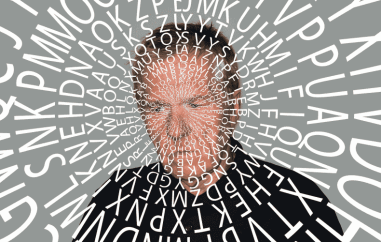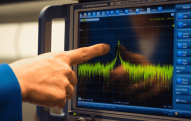Alzheimer's and Parkinson's: Understanding the Two Most Common Neurodegenerative Disorders
 Neurodegenerative disorders like Alzheimer's and Parkinson's have become increasingly prevalent as life expectancy rises globally. These conditions not only pose significant challenges for patients and their families but also represent a substantial burden on healthcare systems worldwide. Understanding these disorders, their symptoms, causes, and potential treatments is crucial for addressing the complex issues they present.
Neurodegenerative disorders like Alzheimer's and Parkinson's have become increasingly prevalent as life expectancy rises globally. These conditions not only pose significant challenges for patients and their families but also represent a substantial burden on healthcare systems worldwide. Understanding these disorders, their symptoms, causes, and potential treatments is crucial for addressing the complex issues they present.
Alzheimer's Disease: A Progressive Cognitive Decline
Alzheimer's disease, the most common form of dementia, affects millions of people worldwide, with numbers expected to rise as the population ages. It is characterized by a progressive decline in cognitive function, including memory loss, impaired reasoning, and changes in behavior and personality.
One of the hallmarks of Alzheimer's disease is the accumulation of abnormal protein deposits in the brain, namely beta-amyloid plaques and tau tangles, which disrupt communication between neurons and lead to their eventual death. These changes typically begin in the hippocampus, a region critical for memory formation, before spreading to other parts of the brain.
While age is the most significant risk factor for Alzheimer's, genetic factors, lifestyle choices, and environmental influences also play roles in its development. Currently, there is no cure for Alzheimer's disease, but medications and lifestyle interventions may help manage symptoms and slow its progression in some cases.
Parkinson's Disease: A Movement Disorder with Varied Symptoms
Parkinson's disease affects movement, causing tremors, stiffness, and difficulty with balance and coordination. It results from the gradual loss of dopamine-producing neurons in the brain, particularly in the substantia nigra, a region involved in movement control.
In addition to motor symptoms, Parkinson's can also manifest non-motor symptoms such as cognitive impairment, depression, and sleep disturbances. Like Alzheimer's, Parkinson's is a progressive disorder with no cure, although treatments such as medication, physical therapy, and deep brain stimulation can help alleviate symptoms and improve quality of life for patients.
Overlapping Features and Distinct Differences
While Alzheimer's and Parkinson's are distinct disorders with different primary symptoms, they share some commonalities, particularly in terms of the underlying mechanisms of neurodegeneration. Both involve the accumulation of abnormal protein aggregates in the brain, albeit different types of proteins in different brain regions.
Furthermore, both diseases have significant impacts on cognitive function, although Alzheimer's primarily affects memory and reasoning while Parkinson's primarily affects movement. However, it is not uncommon for patients with Parkinson's to develop cognitive impairment resembling dementia in the later stages of the disease.
Research and Treatment Advances
Despite the challenges posed by Alzheimer's and Parkinson's, ongoing research efforts offer hope for improved diagnosis and treatment options. Advances in neuroimaging techniques allow for earlier detection of brain changes associated with these disorders, potentially enabling interventions to begin at earlier stages when they may be more effective.
Moreover, scientists are exploring innovative approaches to targeting the underlying disease processes, such as immunotherapies to clear abnormal protein aggregates or gene therapies to protect neurons from degeneration. While these treatments are still in the experimental stages, they represent promising avenues for future therapeutic development.
The Importance of Support and Advocacy
In addition to medical interventions, support and advocacy play crucial roles in managing Alzheimer's and Parkinson's disease. Patients and their families benefit from access to education, counseling, and community resources to help navigate the challenges of living with these conditions.
Furthermore, raising awareness and advocating for increased research funding are essential steps in the fight against neurodegenerative disorders. By promoting greater understanding and investment in research, we can work towards a future where effective treatments and ultimately cures are within reach for all those affected by Alzheimer's and Parkinson's.
Alzheimer's and Parkinson's disease represent significant public health challenges with far-reaching implications for individuals, families, and society as a whole. While these neurodegenerative disorders present distinct symptoms and challenges, they share common features in terms of underlying mechanisms and the need for effective treatments.
By fostering greater awareness, investing in research, and providing support for patients and their caregivers, we can work towards better outcomes for those affected by Alzheimer's and Parkinson's. Together, we can strive towards a future where these devastating diseases are no longer a source of fear and uncertainty but instead, are manageable conditions with effective treatments and ultimately, cures.
Image by Gerd Altmann from Pixabay
Â



































